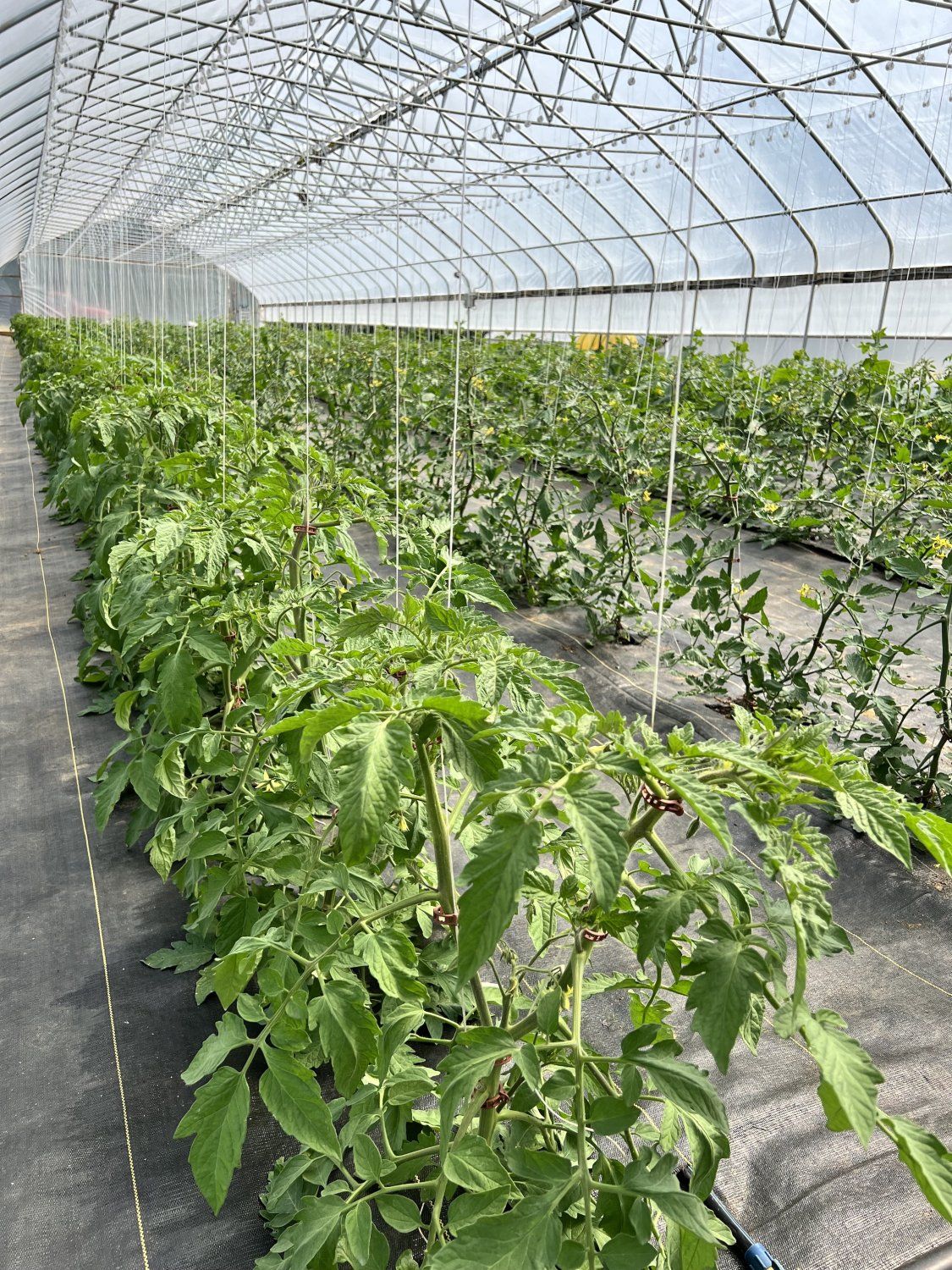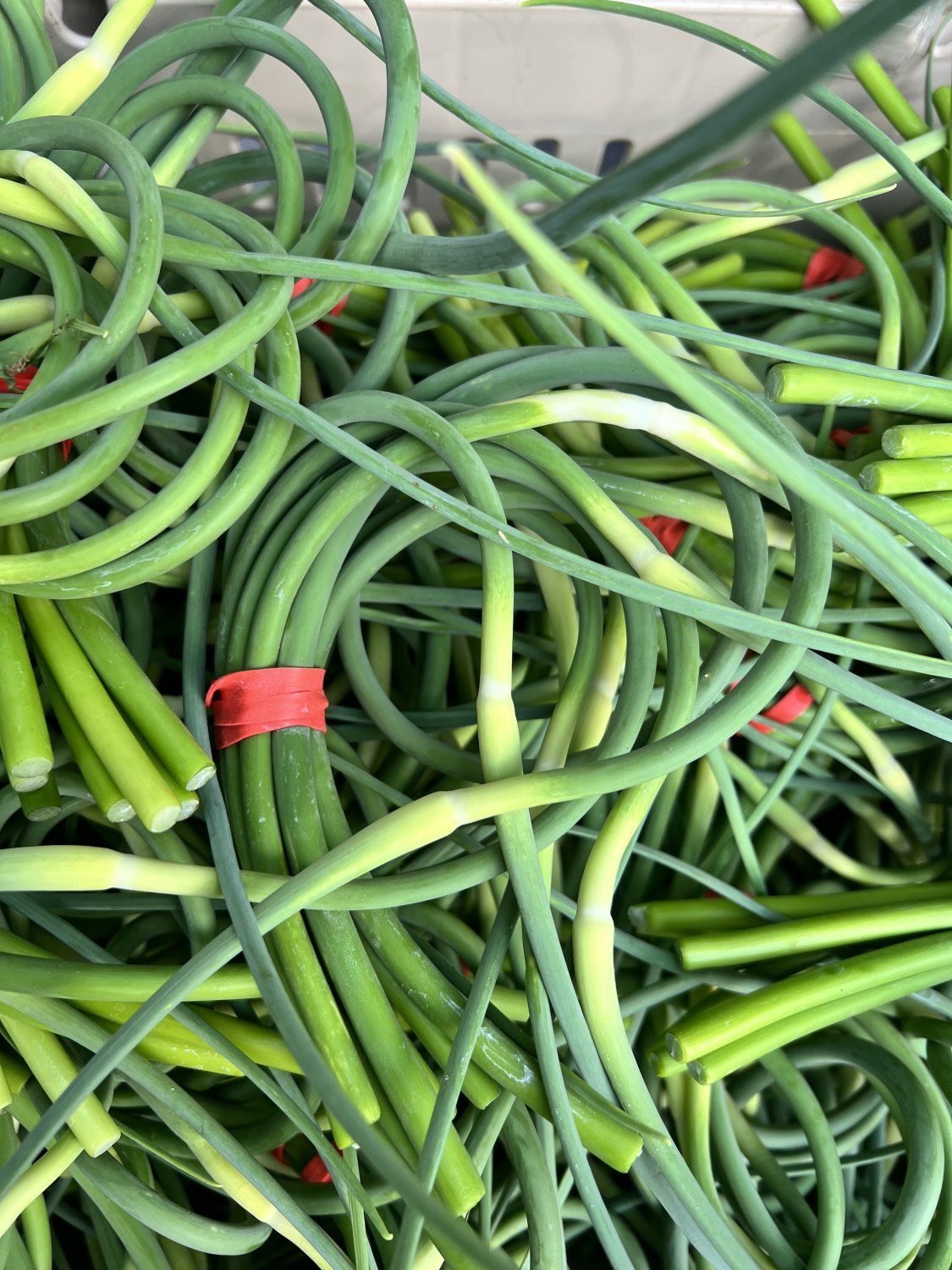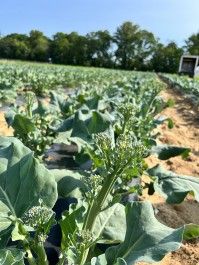D&V Organics CSA
Week 3
As the season progresses, we'll see additional produce items reach maturity. This week we will have a few new things to add to shares! Our broccolini crop is finally starting to really kick off, requiring regular picking now that the temperatures have accelerated its growth. We'll have a couple new greens this week; the escarole is getting big enough to harvest as well as the komatsuna, a dark green Japanese leafy vegetable very similar to baby bok choi, which is great for sautéing, steaming or adding to soups, and our napa cabbage is ready as well. Additionally, some of our cauliflower is starting to mature sporadically, so we expect that in another week or two, and we are seeing our first planting of zucchini with tiny fruits on it in the field, looking about two weeks out on that.
This week on Monday we have our yearly organic inspection taking place. Part of our organic certification is submitting a plan for our farm operation, detailing our practices and submitting information on the inputs (fertilizers, potting soil, seeds, etc.) that we use on our farm for producing our vegetables. Over the course of the year, we are required through the organic standards, to keep detailed records of our seed and fertilizer purchasing, planting and field operations, as well as detailed harvest records. The amount of work regarding the record keeping is rigorous. During the inspection, the inspector, who works for our certifier, visits the farm, asks about our practices, inspects the inputs we have on hand and walks with us through the fields to gain insight on our operation and whether or not it meets the organic standards. After a field and facility tour, the inspector performs a record audit, making sure that they can trace our harvests all the way back to planting in the field, the fertilizer we used to grow the crops, the date we seeded the crop in the greenhouse, and purchase records for the seed and fertilizer that we documented. To say the least, it is somewhat stressful. But, it is an important process in verifying that our growing practices meet the standard without any doubt. This yearly inspection is scheduled, which makes it a little easier on us, but in an effort to reduce fraud, the USDA has required that certification agencies increase the frequency of random, unannounced inspections, which is an entirely different level of stressful. We did have one of the unannounced inspections back in 2020, so hopefully we won't get chosen for another one any time soon. Outside of the agriculture community, very few people understand what is involved in the organic certification process for a farm. Hopefully this has elucidated this process for some of you.
Enjoy,
Derek and Crew




